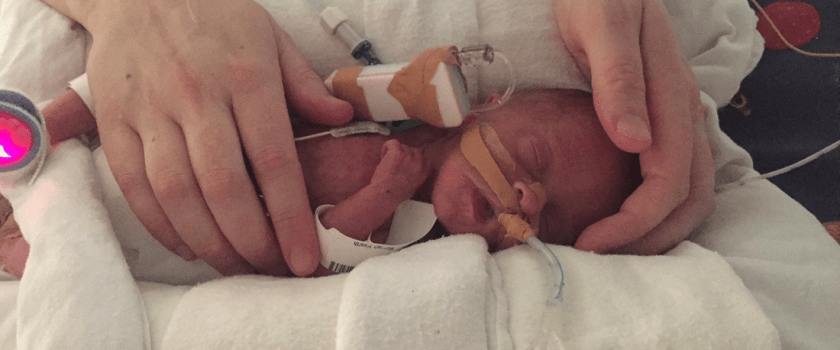Placental stem cells could treat premature babies with long-term lung disease

Summary
Researchers have evaluated the long-term outcomes of a world-first study that trialed a type of stem cells to treat premature babies with severe bronchopulmonary dysplasia, a form of lung disease that can last a very long time. The stem cells were from the placenta, the part of the womb which supplies oxygen and nutrients to the baby. The first-in-human study led by clinicians and scientists from Melbourne, Australia was published in the journal, Stem Cells Translational Medicine, earlier this year.
Each year in Australia, about 3,500 babies are born very premature – before 32 weeks. Survival outcomes for these babies have improved over the past few decades due to advances in medical technology. However, a significant percentage of them go on to have long-term lung disease. This makes their lungs stiff, so breathing is more difficult.
In this study, researchers injected the stem cells into babies with long-term lung disease to assess the safety of using the treatment. The stem cells came from healthy placentas, from women delivering through uncomplicated pregnancies at full term.
They believe these cells help ‘kick start’ the baby’s own natural defences against illness to ‘empower’ them to prevent or fight this disease. This was the first time any baby (or human) had this kind of cell therapy so assessing the long-term safety over the first two years of life was very important.
The study followed the first 5 babies to receive this therapy until they were 2 years old and assessed them for growth, lung, heart, brain and developmental outcomes at regular intervals. There were no harmful side effects noticed in any baby that could be attributed to the stem cell therapy.
The main outcome of this first trial was safety. Researchers now know it is safe. Next, they need to find the right amount of cells to inject. Finally, they need to show it works. This therapy could be a potential game-changer if shown to work. A dose finding study is currently underway in Melbourne to find out the right dose likely to be effective in the prevention of this lung disease of premature babies.
Clinicians and scientists have been trying for decades to find solutions for chronic lung disease related to prematurity and the research signifies the important first steps towards finding a solution to this major health problem. A decrease in long-term lung disease rates or how bad it is will result in these premature babies breathing much more comfortably as they grow older.
Long-term lung disease has considerable impacts on the baby, the family and the community with impacts in some people lasting for life. The team believes that if they can lessen the burden of this significant complication, everyone stands to gain from it.
View the full article